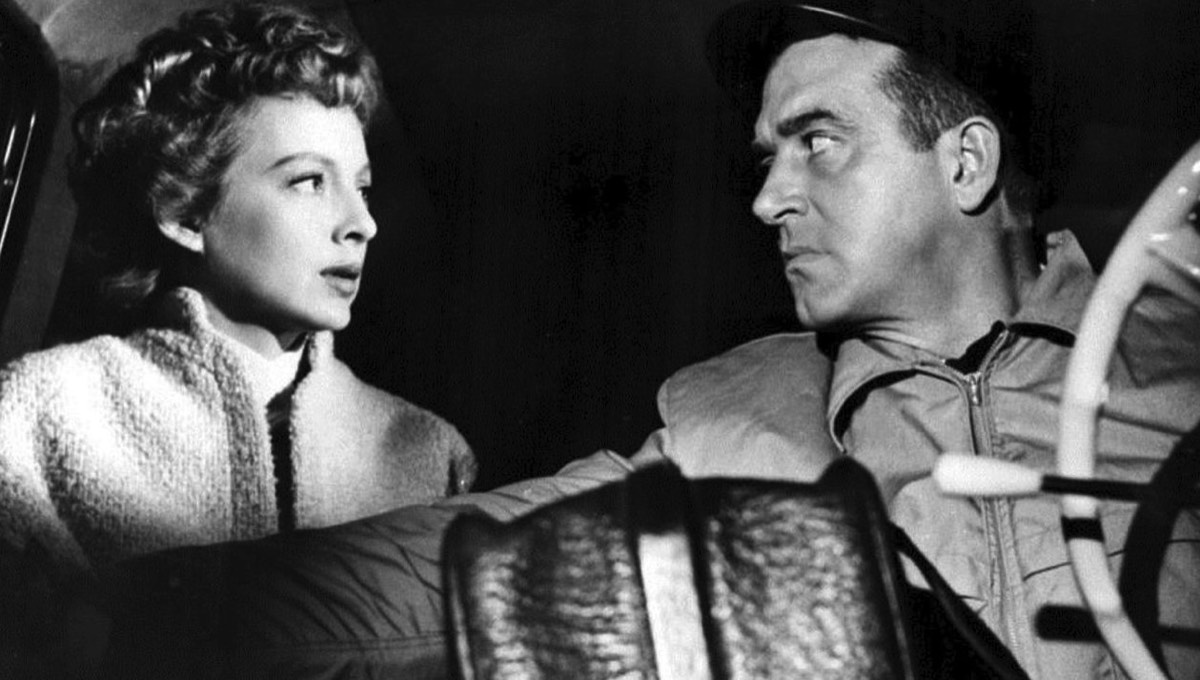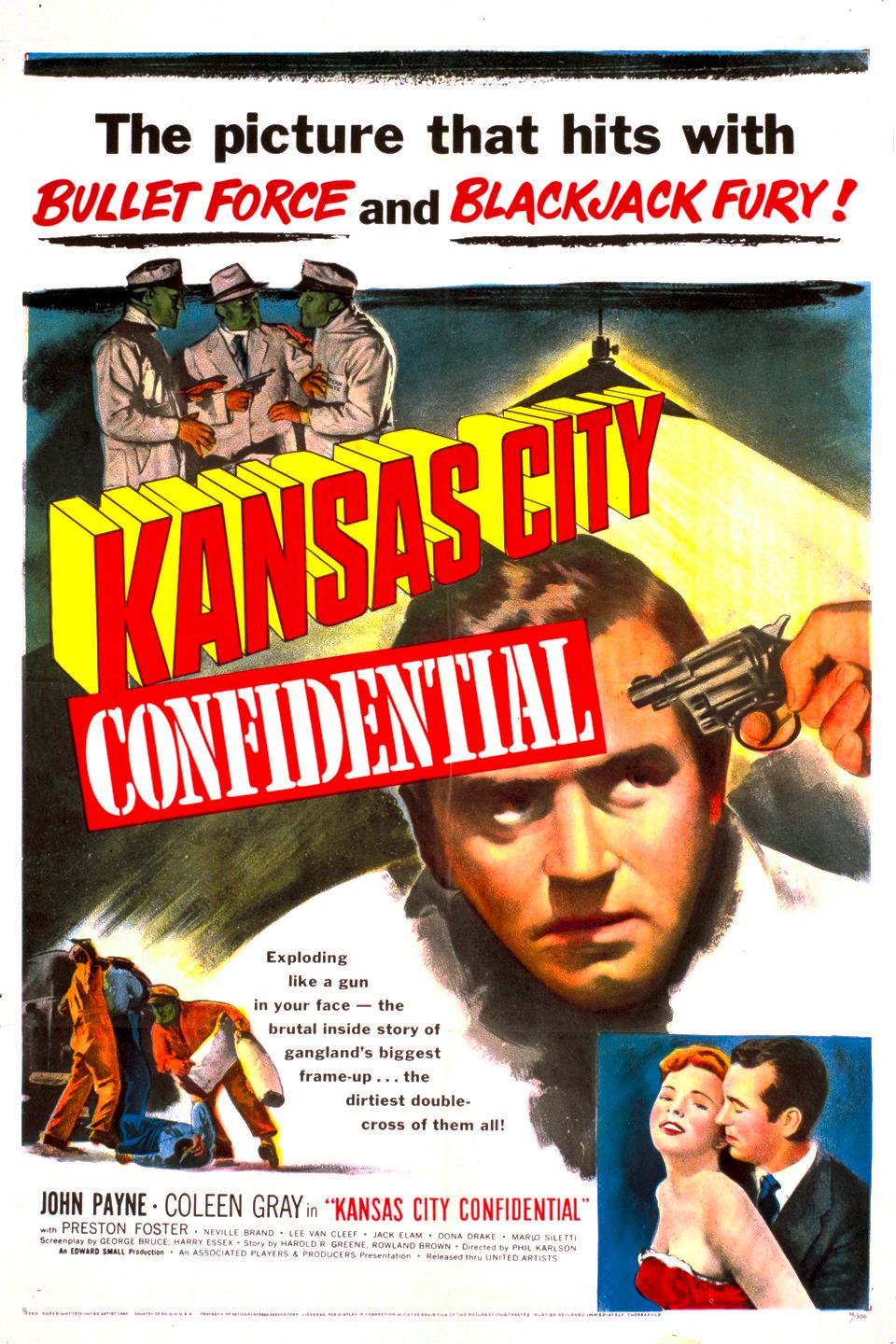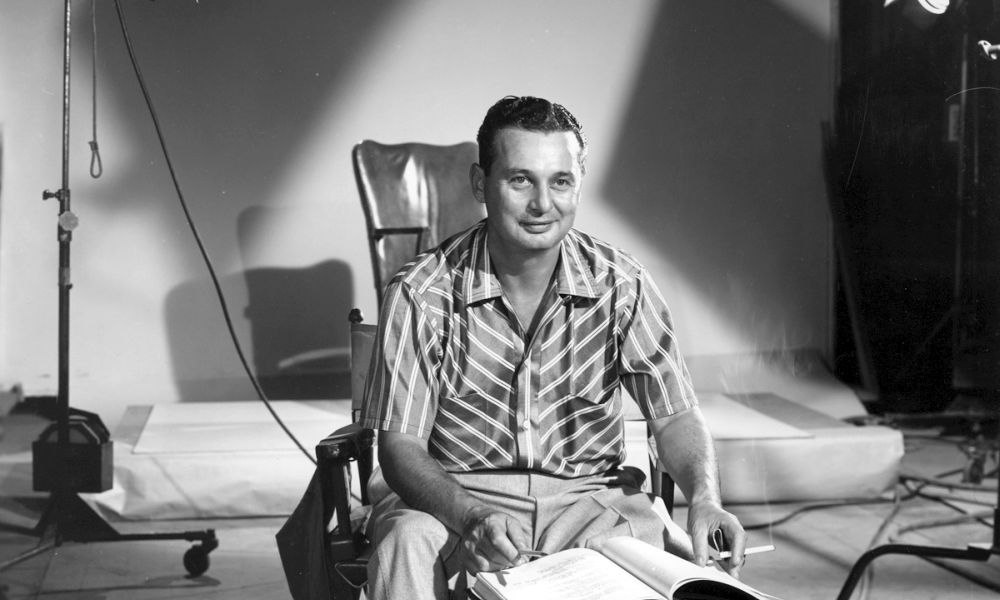"Although his films of the 1940s were mainly minor, run-of-the-mill B features, he made his mark in the 50s with a number of modest but hard-hitting crime films noted for their realism and uninhibited violence." - The Film Encyclopedia, 2012
Phil Karlson
Key Production Country: USA
Key Genres: Crime, Drama, Film Noir, Action, Caper, Melodrama, Crime Drama, Western
Key Collaborators: Burnett Guffey (Cinematographer), George Duning (Composer), Kathryn Grant (Character Actress), Jerome Thoms (Editor), John Payne (Leading Actor), Edward Small (Producer), Robert Peterson (Production Designer), Preston Foster (Leading Actor), Brian Keith (Leading Actor), William Bowers (Screenwriter), Lewis J. Rachmil (Producer), Charles Nelson (Editor)
Key Genres: Crime, Drama, Film Noir, Action, Caper, Melodrama, Crime Drama, Western
Key Collaborators: Burnett Guffey (Cinematographer), George Duning (Composer), Kathryn Grant (Character Actress), Jerome Thoms (Editor), John Payne (Leading Actor), Edward Small (Producer), Robert Peterson (Production Designer), Preston Foster (Leading Actor), Brian Keith (Leading Actor), William Bowers (Screenwriter), Lewis J. Rachmil (Producer), Charles Nelson (Editor)
"People against organized crime and criminals are the subject of most of Karlson's top films. With this, a twist: the evil is rarely eliminated, only temporarily halted (99 River Street, 53; The Brothers Rico, 57; Walking Tall, 73). As such, Karlson is one of the more cynical directors of Hollywood's latter days." - William R. Meyer (The Film Buff's Catalog, 1978)
“Former gagman (for Buster Keaton), propman, studio manager and assistant director who turned out his first feature-length film in 1944. Karlson hit his stride in the 1950s with a brace of gritty crime melodramas noted for their realistic detail and graphic violence… Although he received a measure of critical attention and developed something of a cult following, Karlson remained a B director for the duration of his career. He scored a box office success in 1973 with Walking Tall.” - The Virgin International Encyclopedia of Film, 1992

99 River Street (1953)
"While lacking the passionate, near-visionary intensity of a Samuel Fuller, Karlson showed himself an unflinching action director of more-than-average gifts in a handful of gritty B pictures in the 1950s… Looking at Kansas City Confidential, Scandal Sheet (both 1952), and especially the breakneck-paced The Phenix City Story (1955), one gets the impression that Karlson could have been a noir master; but much of his other output plays like the ordinary hackwork it frequently was." - Leonard Maltin's Movie Encyclopedia, 1995
"To call Phil Karlson a ‘forgotten’ director is sad, but apt. For most of his life, except for a white-hot string of films in the 1950s, Karlson labored on films he had no real interest in, and was in many senses a victim of the Hollywood studio system, blackballed by Harry Cohn just as his career was getting off the ground. But in the end, even though many of his best films have fallen into the Public Domain, Karlson had the last laugh when his self-produced film Walking Tall (1973) made him a millionaire near the end of his life. Karlson is also attracting more critical attention of late as a superb noir director – and if anyone deserves a box set of their key works, and a book length study of their career, Karlson is that person." - Wheeler Winston Dixon (Senses of Cinema, 2017)
"Karlson was most personal and most efficient when he dealt with the phenomenon of violence in a world controlled by organized evil. His special brand of lynch hysteria establishes such an outrageous moral imbalance that the most unthinkable violence releases the audience from its helpless passivity. Unfortunately, and American director gets nowhere making films like The Brothers Rico. The cosmopolitan genre prejudices are too strong." - Andrew Sarris (The American Cinema, 1968)
"Karlson was an interesting director of crime thrillers during the fifties. Vivid and full of action, they depicted the kind of environments that might produce corruption and violence. The Phenix City Story, in particular, is outstanding in its evocation of urban decay… Titles like Scandal Sheet, Kansas City Confidential and Tight Spot suggest Karlson's tabloid economy and, although he also made Westerns, it is as a thriller director that he awaits major discovery. Sadly, his work since the early Sixties has made little impact." - The Illustrated Who's Who of the Cinema, 1983
“Phil Karlson began directing in the mid-forties and made his reputation with the series of crisp, taut, and unusually violent crime melodramas he directed with skill in the fifties… From this point on, Karlson's films fell several notches. Two of his better efforts were Gunman's Walk (1958), a Western centering on a bitter father-son conflict, and Hell to Eternity (1960), an effective war film about a true-life Marine hero who single-handedly caused the surrender of one thousand Japanese soldiers.” - Ted Sennett (Great Movie Directors, 1986)
Selected Filmography
{{row.titlelong}}
GF Greatest Films ranking (★ Top 1000 ● Top 2500)
T TSPDT N 1,000 Noir Films
R Jonathan Rosenbaum S Martin Scorsese
T TSPDT N 1,000 Noir Films
R Jonathan Rosenbaum S Martin Scorsese
"Fan Club"
These film critics/filmmakers have, on multiple occasions, selected this director’s work within film ballots/lists that they have submitted.
These film critics/filmmakers have, on multiple occasions, selected this director’s work within film ballots/lists that they have submitted.


